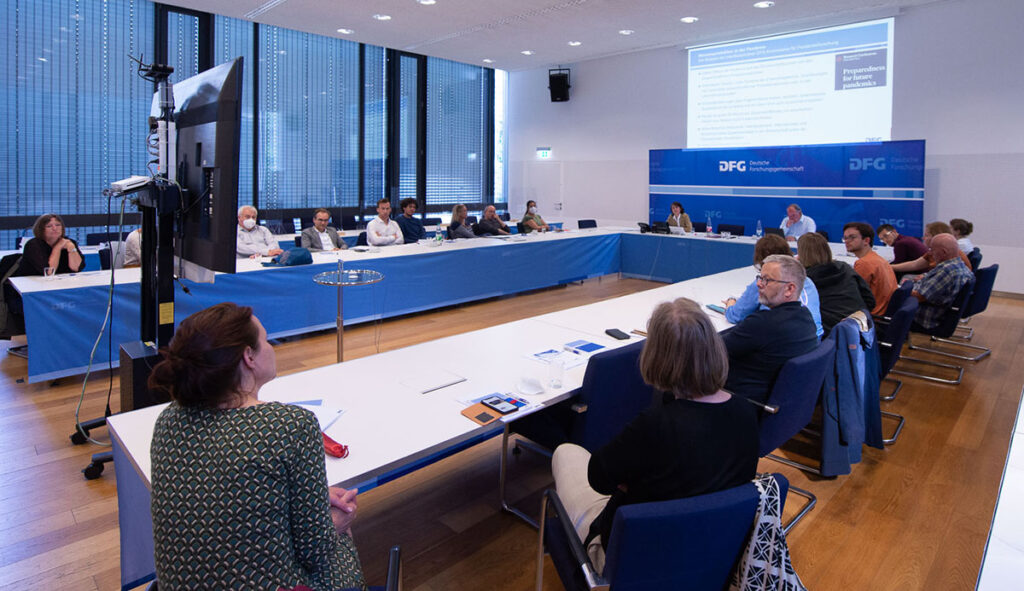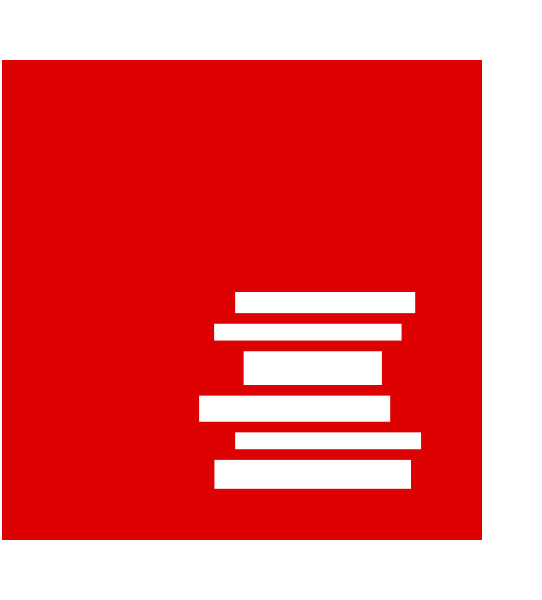On 10 and 11 June, twelve science journalists from the network of the German Science Journalists’ Association (WPK) – one of the RRC’s cooperation partners – met in Bonn for a one-and-a-half-day workshop with RRC-researchers. Under the title “Of Papers, Preprints & Pitfalls – What Science Journalism Needs to Know about Trends in the Publication System”, they discussed what the scientific publication system has in store to evaluate scientific expertise in various lecture and exchange formats. The event marked the start of the Research³-Workshop series, which will cover different topics to address the various target groups of the Rhine Ruhr Center for Science Communication Research (RRC) until the end of the funding period.
Preprints, Peer Review or DFG funding? On the Trail of Scientific Expertise
The group kicked off the first session with a look back at the first months of the Covid-19 pandemic. A pre-print by a team of virologists led by Christian Drosten on the infectivity of children and possible policy implications served as an example. In two small groups, the participants discussed the case and their own observations on the journalistic handling of pre-prints as well as on the attribution and politicisation of expertise. Hoping, in line with its research agenda, for valuable implicit statements on dominant “images and imaginations of science” from one of its target groups, the RRC-team recorded the discussion of the science journalists for later evaluation.
In the course of the first workshop-day, David Kaldewey from the University of Bonn and Martina Franzen from the Institute for Advanced Study in the Humanities deepened the participants’ knowledge on the topics of “Science Research” and “Scientific Publication System”. Their keynote-presentations entitled “Preprints, Retractions and Bestsellers. What does ‘Relevant Publications’ mean?” and “What is Science? What are Science Studies?” led to lively discussions.
Finally, the group visited the German Research Foundation (DFG), where Anne Brüggemann, head of the group “Humanities and Social Sciences 2: Social and Behavioural Sciences“, and DFG Press Officer Marco Finetti welcomed the participants to discuss the extent to which the review and evaluation mechanisms of the DFG can also help journalists to evaluate and deal with heterogeneous and complex forms of scientific expertise.

From Theory to Practice: How to Assess Science and Develop Innovative Formats
The second day of the workshop began with a lecture by Holger Wormer who holds the Chair of Science Journalism at TU Dortmund University. This was followed by a group exercise: Under the usual editorial time pressure, the participants were asked to critically examine a press release on nitrogen limits – true to journalism’s motto: “Just do what you can in the time available! But don’t forego the scientific quality assessment just because you can’t read all the papers on a research area in two hours anyway!”
In the final part, the participants had to put theory into practice under the guidance of Oliver Ruf, Aleksanda Vujadinovic and Andi Siess (Bonn-Rhine-Sieg University of Applied Sciences): In teams of two, the participants developed innovative media formats for communicating information about the scientific publication system. To convey the complex topic, they chose a gamification approach: Science as an adventure role-playing game. Even though, as was noted, the financial resources and IT expertise for the implementation of such an approach are not always available in editorial offices, the groups were still able to set some creative impulses and start their journey home with many new perspectives and ideas.
The next Research³-Workshop is scheduled to take place in October 2022.

